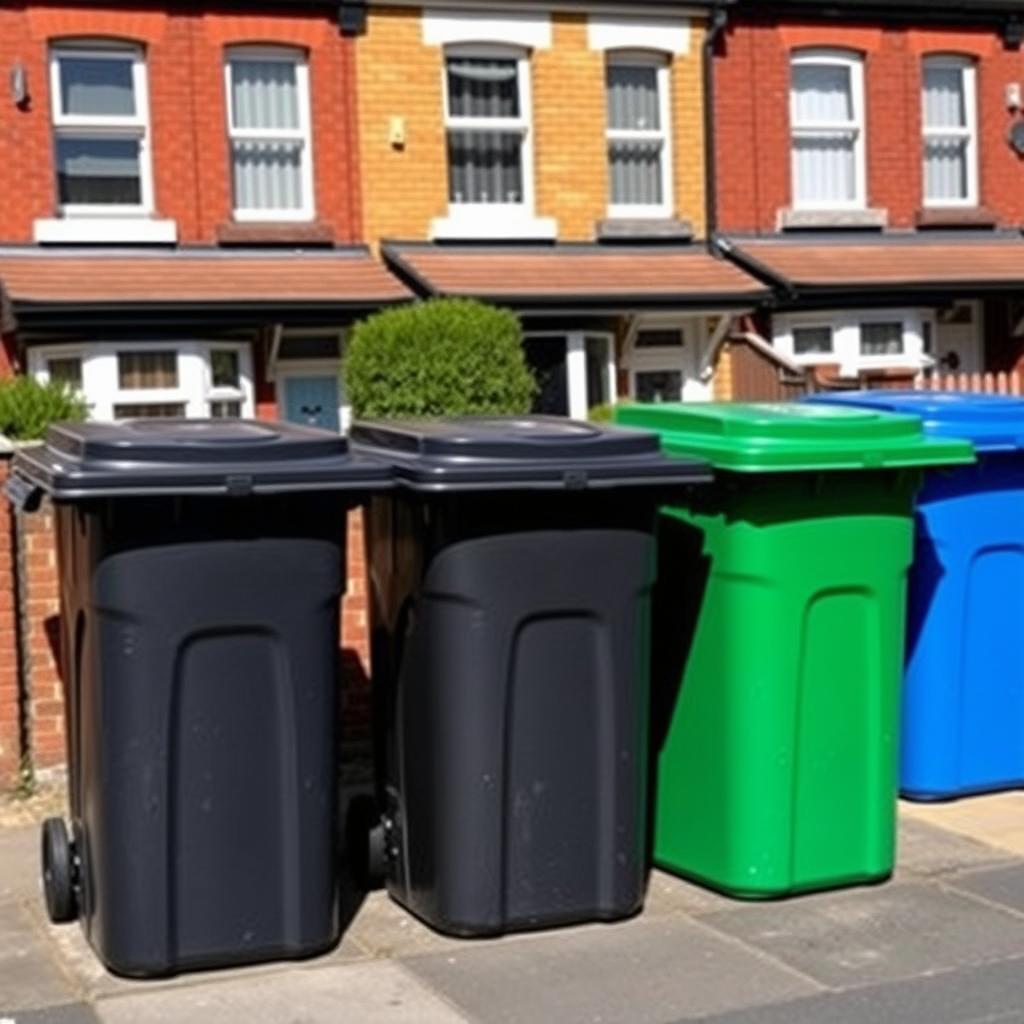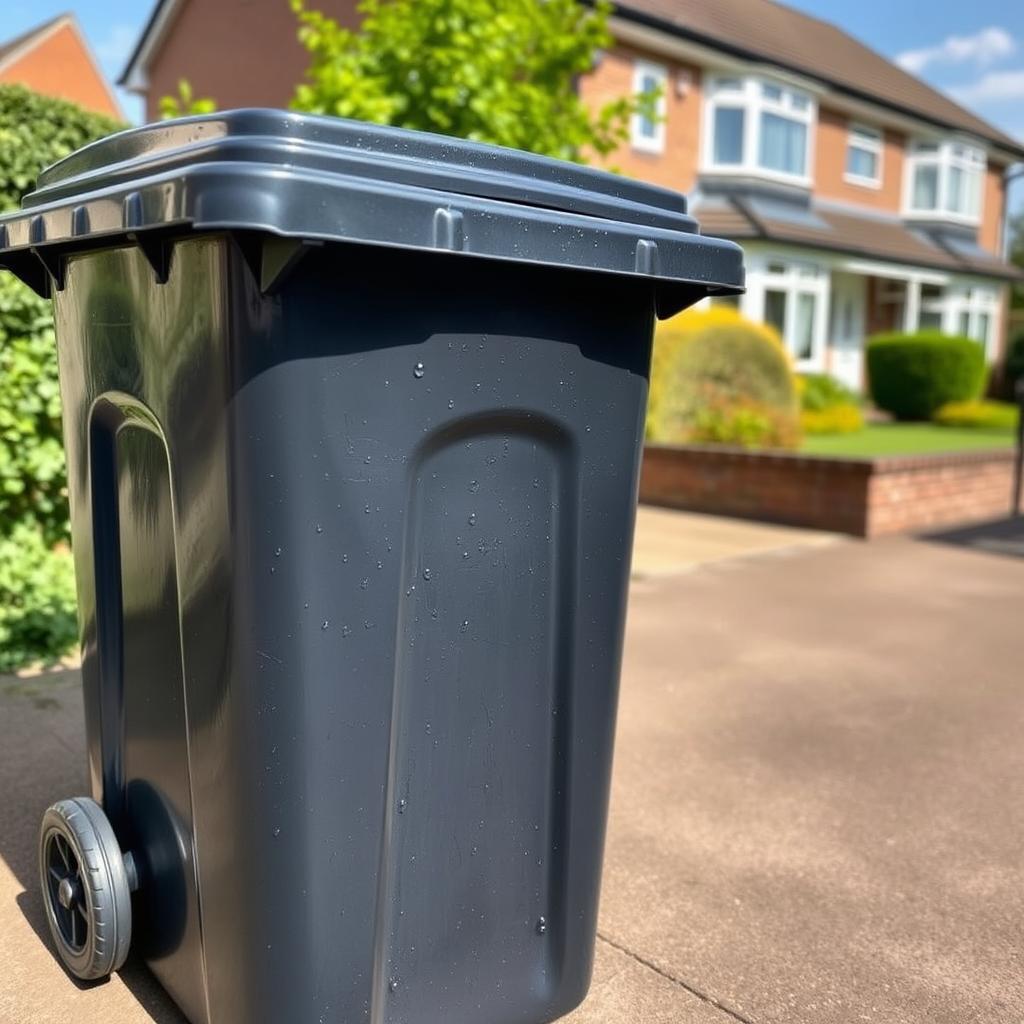Your Local Family-Run Bin Cleaning Experts
For over two decades, our family business has been serving the local community with dedication and care. We understand that behind every wheelie bin is a family trying to maintain a clean, hygienic home environment. That’s why we’ve perfected our cleaning process to deliver spotless results every time.
Our service covers the entire Warrington area and extends to Liverpool, Widnes, and St. Helens. We’re proud to be your neighbours, and we treat every bin with the same attention to detail we would give our own.
Call us on 07776 134023
What Our Warrington Customers Say
Don’t just take our word for it – here’s what local residents think about our wheelie bin cleaning service:
Warrington Bin Cleaning
Covering all suburbs including Latchford, Stockton Heath, Great Sankey, Lymm, Culcheth, and Birchwood.
Also Wheelie Bin Cleanng In Liverpool, Widnes & St. Helens
Extending our professional bin cleaning to neighbouring areas to ensure more homes enjoy the benefits of regularly cleaned bins.

Why Your Wheelie Bin Needs Professional Cleaning
Your wheelie bin deals with all sorts of waste, creating the perfect environment for bacteria, maggots, and unpleasant odours. Here’s why regular professional cleaning makes a difference:
Eliminates Harmful Bacteria
Our cleaning process kills 99.9% of germs and bacteria, including E. coli and Salmonella, which can multiply rapidly in dirty bins.
Removes Unpleasant Odours
We don’t just mask smells – our thorough cleaning and deodorising process eliminates the source of odours, leaving your bin fresh.
Prevents Pest Infestations
Regular cleaning discourages flies, maggots, and other pests from making your bin their home, especially during warmer months.
Ready for a Fresher, Cleaner Bin?
Our next available cleaning slot is in just 3 days. Don’t wait until your bin becomes a health hazard!
How Our Wheelie Bin Cleaning Service Works
We’ve made the process simple and efficient, so you can enjoy the benefits without any hassle:
- Schedule Your Clean – Book online or call us to arrange your fortnightly cleaning service.
- Bin Collection Day – We arrive after your bins have been emptied by the council.
- Thorough Cleaning – Using our specialized equipment, we pressure wash both inside and outside of your bin.
- Sanitizing Treatment – We apply eco-friendly disinfectants that kill 99.9% of germs.
- Deodorizing Finish – A final fresh scent treatment leaves your bin smelling clean.
- Regular Service – We return every two weeks to maintain your bin’s cleanliness.
Affordable Wheelie Bin Cleaning Prices
We believe everyone deserves a clean, hygienic bin without breaking the bank. Our pricing is transparent and competitive:
| Service Type | Frequency | Price | Best For |
| Single Bin Clean | One-off | £15 per bin | Trial or occasional deep clean |
| Regular Service (per bin) | Fortnightly | £4.50 per clean | Standard household waste bin |
| Advanced Discount (12 cleans) | Fortnightly | £4.25 per clean | Standard household waste bin |
| Annual Offer (24 cleans) | Fortnightly | £4 per clean | Complete household bin set |
Call for a Quote: 07776 134023
DIY Bin Cleaning vs. Our Professional Service
Many homeowners attempt to clean their bins themselves before discovering the benefits of our professional wheelie bin cleaning service:
Professional Cleaning Benefits
- Specialized high-pressure equipment reaches every corner
- No mess on your driveway – we contain and remove all wastewater
- Professional-grade disinfectants kill 99.9% of germs
- Save time and avoid the unpleasant task
- No need to store cleaning supplies or equipment
- Consistent fortnightly service maintains hygiene
DIY Cleaning Challenges
- Garden hose lacks pressure to remove stuck-on waste
- Dirty water creates mess on driveway or garden
- Household cleaners may not eliminate all bacteria
- Time-consuming and unpleasant task
- Requires storage of dedicated cleaning supplies
- Often forgotten or postponed due to inconvenience
Environmentally Responsible Bin Cleaning
We take our environmental responsibilities seriously. Our wheelie bin cleaning service uses:
Eco-Friendly Products
All our cleaning solutions and disinfectants are biodegradable and environmentally safe while still effectively eliminating germs and bacteria.
Water Conservation
Our specialized equipment uses high pressure but low water volume, ensuring effective cleaning while minimizing water usage compared to DIY methods.
Frequently Asked Questions About Our Bin Cleaning
How often should wheelie bins be cleaned?
For optimal hygiene, we recommend fortnightly cleaning to coincide with your bin collection schedule. This prevents buildup of bacteria and odours, especially during warmer months when decomposition accelerates.
Do I need to be home when you clean my bins?
No, you don’t need to be present. We schedule our wheelie bin cleaning service to coincide with your regular collection day, after the bins have been emptied. Simply leave your bins out, and we’ll take care of the rest.
What happens if it’s raining on my scheduled cleaning day?
Our service operates in all weather conditions. Rain doesn’t affect our cleaning process – in fact, your bins still need cleaning even when it rains, as rainwater can spread bacteria around the bin.
How do you handle the wastewater from cleaning?
Our specialized equipment collects all wastewater, which is then filtered and disposed of responsibly. We never leave dirty water on your property or allow it to enter storm drains.
Book Your Wheelie Bin Cleaning Today
Since 2002, our family-run wheelie bin cleaning service has been keeping Warrington bins fresh, clean and hygienic. With prices starting from just £4 per clean, professional bin maintenance is more affordable than you might think.
We currently have slots available in just 3 days – don’t miss out on getting your bins professionally cleaned before they become a summer hygiene concern!
Ready for Cleaner, Fresher Bins?
Book your fortnightly wheelie bin cleaning service now or call us with any questions.
Contact us for next availability!
Other Services We Provide
Pressure Washing Services in Warrington, Liverpool & Surrounding Areas
If it’s outside your house and covered in grime, we can blast it clean. Our professional pressure washing service tackles everything from walls and fences to decking, garage doors, and even garden furniture.
You’d be amazed how much dirt, algae, and pollution builds up on outside surfaces – things you see every day but don’t really notice until we clean them and suddenly your house looks about ten years younger.
It’s not just about appearances either – that black and green mould on your fence or decking isn’t doing the wood any favors, and cleaning it off regularly helps everything last longer.
We use the right equipment and techniques for different surfaces, so we’re not going to damage your render or blast away pointing from your brickwork.
The best bit?
Since we’re already in your neighborhood every fortnight doing bins, we can easily slot you in for pressure washing work without you having to arrange a separate company or wait weeks for an appointment.
Whether it’s a quick clean of your bin store area or a full exterior makeover, just let us know what needs doing and we’ll give you a free quote. Spring and summer are the busiest times for this, but we’re out working all year round.
Professional Gutter Cleaning Services in Warrington, Liverpool & Knowsley
While we’re taking care of your bins, we can sort your gutters too. Blocked gutters aren’t just annoying – they can lead to serious problems like damp walls, overflowing water damage, and even structural issues that’ll cost you thousands to fix. Our gutter cleaning service typically takes about 3 hours including travel, and it’s a lot cheaper than repairing a damaged wall or dealing with damp problems down the line.
We clean out all the leaves, moss, and muck that’s built up, check your downpipes are flowing properly, and make sure everything’s working as it should. Most of our customers get their gutters done once a year – usually in autumn before the worst of the winter weather hits.
Since we’re already coming round for your bins every fortnight, it’s dead easy to quote when we’re in your area.
No separate appointments, no waiting around – we’ll let you know when we can fit you in and give you a quote based on your property.
Driveway & Patio Cleaning Services Across Warrington, Liverpool and Knowsley
Your driveway and patio get absolutely hammered by the weather, dirt, moss, and algae – especially in our part of the country where it’s always chucking it down!
Over time, all that green slippery stuff doesn’t just look grim, it’s actually dangerous.
We’ve had customers tell us they nearly went over on their own drive because of moss buildup.
Our driveway and patio cleaning service uses professional-grade pressure washing equipment to blast away years of dirt, moss, and staining, bringing your block paving, concrete, or paving slabs back to looking like new. I
t’s a proper job that makes a massive difference to how your house looks from the street. Best time to get it done is spring or early summer, before you’re out there with the BBQ and trying to enjoy your garden.
Like with gutters, we can quote when we’re already in your area doing bins, so it’s one less thing to think about.
Just give us a shout and we’ll get you booked in with a free quote.

